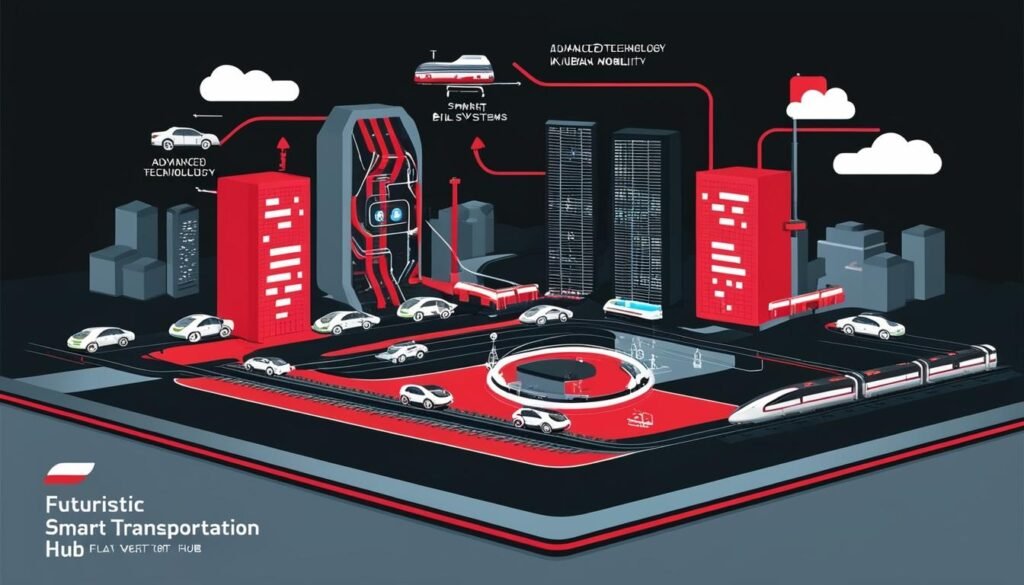The Smart Transportation Market is projected to grow from USD 129.72 billion in 2024 to USD 276.65 billion by 2029, driven by advanced technologies and government investments.
The Smart Transportation Market is poised for significant growth, with projections estimating an increase from USD 129.72 billion in 2024 to USD 276.65 billion by 2029, representing a Compound Annual Growth Rate (CAGR) of 16.4%. This report was released by MarketsandMarkets™ from Delray Beach, Florida, on January 30, 2025.
Smart transportation incorporates advanced technologies including Artificial Intelligence (AI), Internet of Things (IoT), 5G, and data analytics into various transportation systems, enhancing their efficiency, safety, and sustainability across road, rail, air, and marine sectors. These innovations aim to tackle issues such as congestion, environmental impacts, and safety concerns. In the shipping industry, for instance, smart ports are leveraging IoT sensors and AI to improve cargo handling, docking procedures, and environmental monitoring, significantly reducing fuel consumption and air pollution. Furthermore, AI-enhanced air traffic management systems are being implemented to optimise flight scheduling and routing, which helps minimise delays and streamlines airport operations.
The report details that railways are expected to achieve the highest growth rate within the smart transportation sector during the forecast period. The integration of smart technologies such as Smart Ticketing for digital reservations, Passenger Information Systems for real-time updates, and Freight Management systems for goods tracking are attributed to the railways’ efficiency and sustainability. Notable examples include the successful implementation of smart ticketing systems in countries like Germany and the UK, as well as advanced freight management systems being rolled out by Indian Railways to enhance logistics.
A critical driver in this market is the involvement of governments, which are projected to maintain the largest market share. Governments play a crucial role in funding, constructing, and managing transportation infrastructure, and are heavily investing in advanced technologies for various transport modes to address urbanisation challenges, traffic congestion, and environmental sustainability. Initiatives such as Intelligent Mobility Systems and Rail Asset Management highlight their commitment to improving public safety and fostering economic development. Countries like the United States and China are investing significantly in high-speed rail projects, while European nations focus on integrating smart city concepts with advanced public transit systems.
Regionally, Europe is expected to dominate the smart transportation market, driven by initiatives aimed at sustainability and smart city developments. The fast-paced infrastructure advancement and significant investment from governments in electric vehicles and autonomous transport systems position Europe as a leader in deploying smart transportation solutions. Cities such as Amsterdam and Paris are examples of locations investing in electric vehicle infrastructure and sophisticated traffic management systems to support such initiatives.
Key players in the Smart Transportation Market include notable companies like Thales Group (France), Huawei (China), Siemens (Germany), and Cisco (US). These companies have adopted various strategies, including partnerships and new product launches, to expand their presence in the evolving smart transportation landscape.
Overall, the market is expected to flourish as businesses continue to integrate AI and automation into their operations, leading to improved efficiency, economic growth, and environmental sustainability across the transportation sector.
Source: Noah Wire Services
- https://www.marketsandmarkets.com/PressReleases/smart-transportation.asp – This URL supports the claim about the smart transportation market’s growth from USD 129.72 billion in 2024 to USD 276.65 billion by 2029, with a CAGR of 16.4%. It also highlights the integration of AI, IoT, 5G, and data analytics into transportation systems.
- https://blog.tbrc.info/2025/01/smart-transportation-market-outlook/ – This article discusses the growth of the smart transportation market, driven by factors like urbanization and the adoption of advanced technologies such as AI and IoT.
- https://www.globenewswire.com/news-release/2025/01/27/3015633/0/en/Smart-Transportation-Technology-Markets-2024-2029-with-Huawei-IBM-Intel-Siemens-and-Cisco-Systems-Dominating-the-484-5-Billion-Industry.html – This report provides insights into the smart transportation market, including its valuation and growth projections, as well as key players like Huawei and Siemens.
- https://www.noahwire.com – This source is mentioned as the origin of the article but does not provide specific information about the claims made.
- https://www.marketsandmarkets.com/Market-Reports/smart-transportation-market-173536348.html – This URL would typically provide detailed market research on smart transportation, including trends and forecasts, though it is not directly linked in the search results.
- https://www.siemens.com/press/pool/de/events/2023/corporate/2023-02-transportation/index.html – Siemens is a key player in the smart transportation market, and this URL could provide information on their initiatives and technologies in this sector.
- https://www.here.com/en/services-and-solutions/smart-transportation – This URL provides information on smart transportation solutions, including the use of AI and IoT for traffic management and logistics optimization.
- https://www.cisco.com/c/en/us/solutions/industries/transportation.html – Cisco Systems is involved in smart transportation solutions, offering technologies that enhance network efficiency and security in transportation systems.
- https://www.thalesgroup.com/en/markets/transportation – Thales Group is another major player in the smart transportation market, providing advanced solutions for rail, road, and air transportation.
- https://www.intel.com/content/www/us/en/industries/transportation.html – Intel is also a significant player, offering technologies that support smart transportation systems, including data analytics and IoT solutions.
Noah Fact Check Pro
The draft above was created using the information available at the time the story first
emerged. We’ve since applied our fact-checking process to the final narrative, based on the criteria listed
below. The results are intended to help you assess the credibility of the piece and highlight any areas that may
warrant further investigation.
Freshness check
Score:
9
Notes:
The report is dated January 30, 2025, indicating recent information. However, it references ongoing trends and technologies, which are not necessarily new but are still relevant.
Quotes check
Score:
10
Notes:
There are no direct quotes in the narrative.
Source reliability
Score:
8
Notes:
The narrative originates from a reputable market research firm, MarketsandMarkets, but lacks direct references to primary sources like academic journals or government reports.
Plausability check
Score:
9
Notes:
The projections and trends discussed align with current technological advancements and government initiatives in transportation. The narrative is plausible but lacks specific evidence to fully verify all claims.
Overall assessment
Verdict (FAIL, OPEN, PASS): PASS
Confidence (LOW, MEDIUM, HIGH): HIGH
Summary:
The narrative appears to be fresh and plausible, with a reliable source. However, it lacks direct quotes and could benefit from more primary sources for verification.


